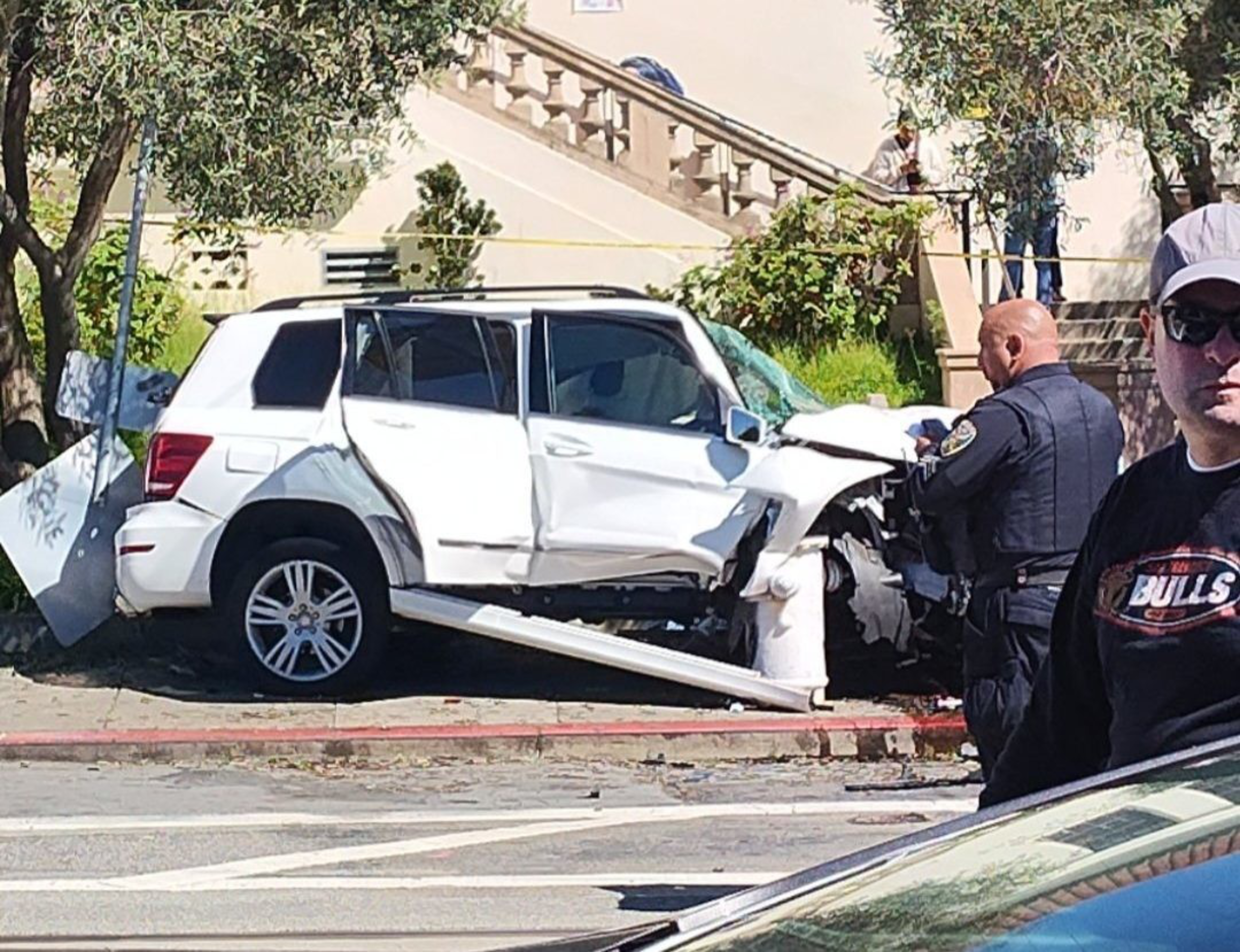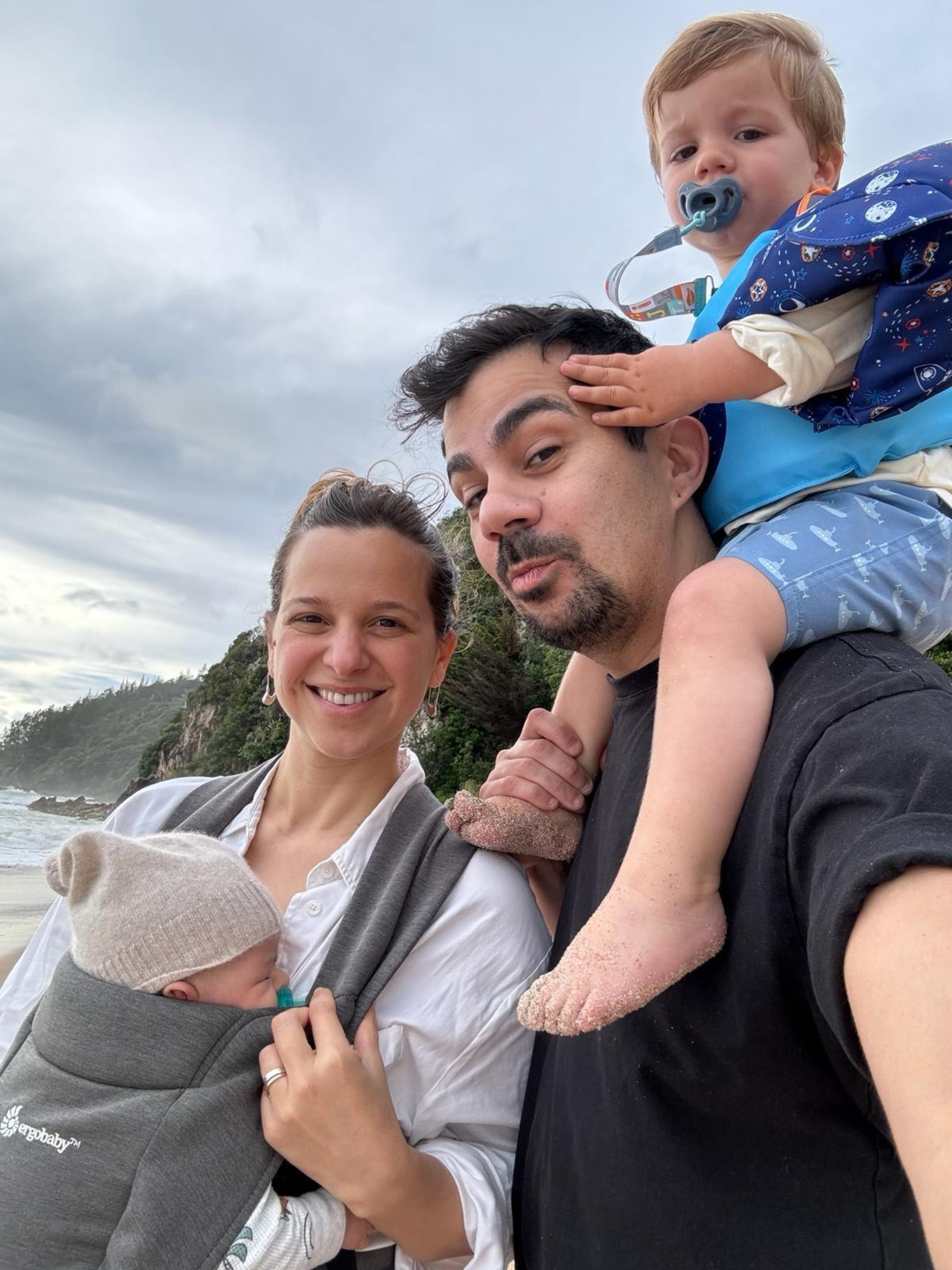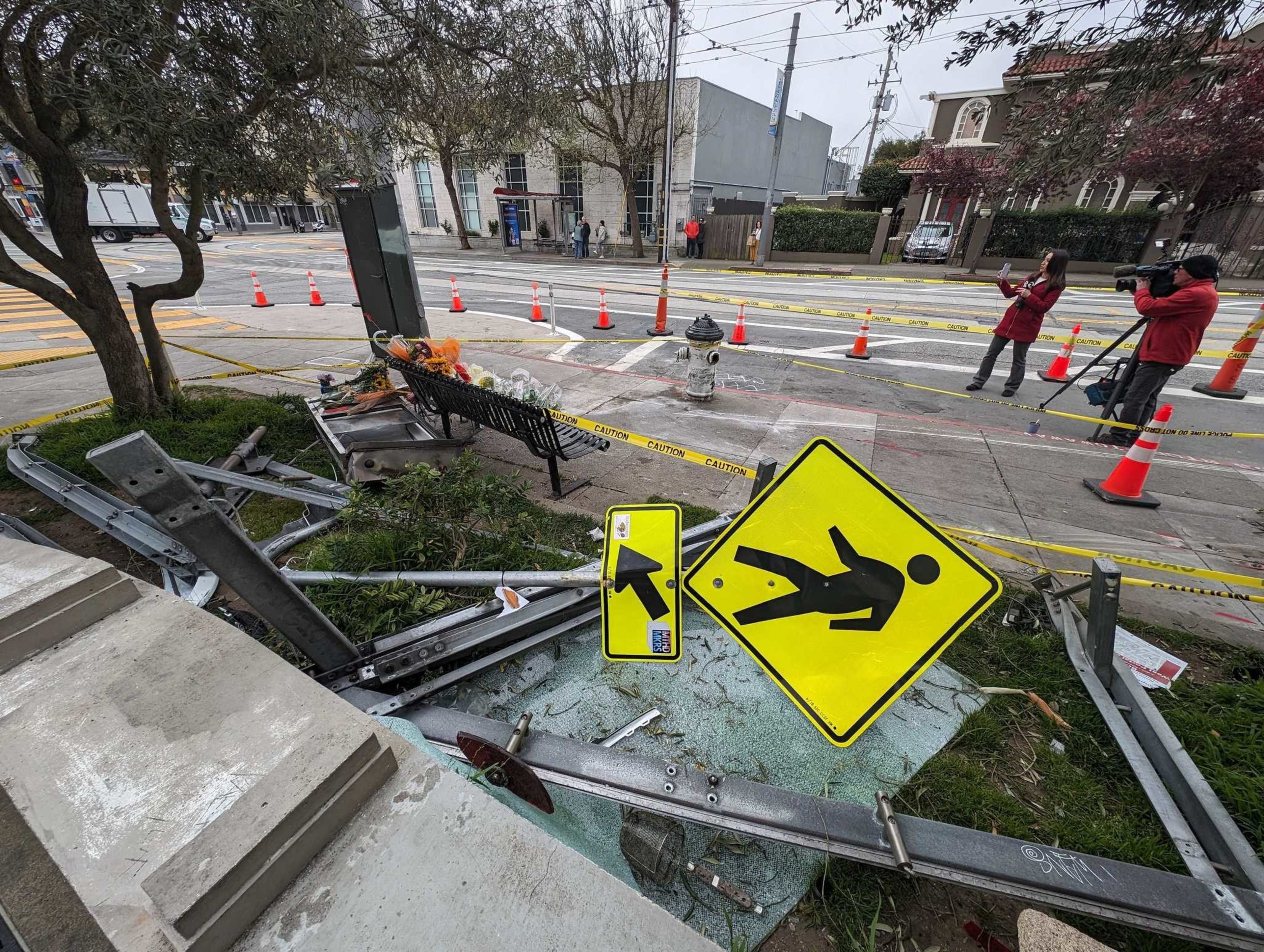The initial toxicology report for the driver who allegedly crashed her SUV onto a West Portal sidewalk, killing a family of four, did not show that she was impaired, The Standard has learned. Law enforcement is now probing whether there was a mechanical failure in the Mercedes.
The revelations provide a glimpse into the otherwise opaque criminal investigation that has unfolded since police arrested driver Mary Fong Lau, 78, in connection with the March 16 crash. Ever since that tragic day, residents, business owners, City Hall and the San Francisco Municipal Transportation Agency have sparred over how, or whether, to reshape the intersection of Lenox Way and Ulloa Street, where the incident occurred.
Even as those arguments rage on, the public is still in the dark as to what caused Lau’s vehicle to allegedly smash into the Oliveira-Pinto family. The clean initial toxicology report, however, appears to rule out impairment, a cause of many vehicle crashes.
After the collision, the San Francisco Police Department arrested and booked Lau on suspicion of felony vehicular manslaughter, felony reckless driving causing bodily injury and additional traffic violations. Prosecutors have an initial 72-hour window to file charges against a suspect after they are arrested. In this case, law enforcement released Lau pending further investigation. The District Attorney’s Office has three years to file charges if it decides to.
Lau is now out of custody and cooperating with police; she has given them at least one interview.

Police, lawyers and DA insiders say that the length of the investigation—now stretching into its eighth week—and the delay in filing charges are common in these types of complicated cases.
“I have handled cases like this in the past, and I do think it’s typical for these kinds of decisions to take time,” said attorney Samuel Geller, who is representing Lau.
Regardless of the time frame of the investigation, Geller and a former SFPD deputy chief say investigations like this include everything from interviewing witnesses and reviewing video to checking for any mechanical issues with the car or whether Lau was intoxicated by any substances that could have impacted her ability to drive.
“You look at it as if you would investigate a homicide, there’s just more science involved,” said retired SFPD Deputy Chief Mikail Ali, who has no information about the case.
A key piece of technical information in such investigations, Ali said, is supplied by a device similar to the black box in an airplane. The device saves data documenting a vehicle’s speed upon impact and whether or not the brakes were applied.
Such information could also give investigators insight into the car’s mechanical workings. A source close to the case told The Standard that officials are currently checking whether a mechanical failure could have played a part in the crash.
Questions about mechanical issues with vehicles are typically only looked into when the driver blames their ability to control the car on a malfunction, Ali said.
Another factor in the case is Lau’s age. The investigation will probably look into any cause that may be linked to impaired driving due to age, Ali said. In California, doctors can report patients to the DMV if their health conditions could impact their driving.
It’s unclear if Lau has any health issues that may have impacted her physical ability to control the car or if she has ever been reported to the DMV.
According to the Centers for Disease Control and Prevention, “age-related changes in vision, physical functioning, and the ability to reason and remember, as well as some diseases and medications, might affect some older adults’ driving abilities.”

If Lau is charged, Ali speculated, those charges would depend on whether she was simply negligent—she made a mistake that did not break the law—or was grossly negligent, which means her mistake was a breach of the law.
The DA did not respond to a request for comment on the case. Although the SFPD would not comment on the investigation, the department noted that it investigated 31 fatal traffic collisions in 2023 and made 13 arrests in those cases.
Changes to West Portal street design
While the criminal investigation into Lau continues, a battle is brewing over whether or not to reshape the intersection where the crash took place.
Both Mayor London Breed and Supervisor Myrna Melgar asked SFMTA to improve traffic safety near the West Portal transit station in light of the deaths. In response, the agency proposed a bevy of street design changes that would limit where vehicles could move through the space and protect the bus stop where the crash happened.
But the SFMTA has already come to a key conclusion: The infrastructure of the street did not cause the crash.
The driver was “traveling at a high rate of speed on the wrong side of the road and lost control of the car,” SFMTA spokesperson Michael Roccaforte told The Standard. “It was an exceptionally rare case and one of those freak things that’s tough to prevent.”

Lau was allegedly speeding eastbound on Ulloa Street when she drove on the wrong side of the road and onto the sidewalk, according to the SFMTA collision report. After jumping up onto the sidewalk, her SUV first struck the West Portal Branch library building and then hit the victims, who were waiting at the bus shelter at Lenox Way. Her vehicle came to a stop atop the fire hydrant in front of the library, photos of the crash’s aftermath show.
Many West Portal merchants and residents have come out against the SFMTA proposal, including dozens who sent a template letter explaining their opposition to the Board of Supervisors.
“This plan seems like an opportunistic move, capitalizing on a recent tragedy for political gain, driven by advocacy groups disconnected from our neighborhood’s realities,” wrote Marena Granados, one of the people who used the letter template.
The pressure campaign worked. Late last month, Melgar announced that the city would postpone making changes as it waited to hear feedback from a community committee.
The situation echoed the last time city officials tried to rethink the bustling West Portal hub in 2019. That proposal, aimed at reducing transit delays and improving safety by restricting vehicle traffic, also faced local opposition, prompting SFMTA to make “considerable changes (opens in new tab)” to its original plans.
“It was basically watered down to the point of uselessness,” transit activist Luke Bornheimer said of the 2019 pilot. “It’s scary similar to what’s happening now.”
